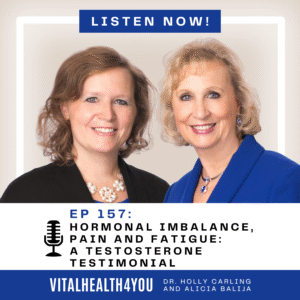It’s that time of year again: family gatherings, parties, shopping, Christmas cheer and all too often stress, fatigue, anxiety, depression, etc.
Stress, applied in a healthy way can be beneficial to health. But that’s only when you’re out in the wilderness and a saber tooth tiger wants you for lunchmeat. Then, when your fight or flight instinct kicks in, stress is appropriate. Or when your child runs out in front of a car and that fight or flight kicks in to save the child’s life, it’s okay then too.
Stress is interpreted by the body as a fight or flight instinct. Any function not needed to fight or flee from danger shuts down. That’s okay once in a while. But if this mechanism kicks in day in and day out in what we commonly refer to as “stress”, now we’ve got a problem. Now we have the foundation for disease.
Almost everyone has stress, but it is how you cope with stress that makes the difference. It is also how your body adapts that determines disease.
There is an epidemic that is sweeping this country and leaving in its wake poor work performance, loss of the simple pleasures in life, lack of ability to exercise, kids who can’t sit still and repeatedly get into trouble, poor ability to cope, difficulty parenting, troubled homes and even loss of life. What is this epidemic and what can we do about it?
It is fatigue and low energy. The number one complaint I hear when a new patient comes in to see me is that of fatigue and it’s cousins- “No zip”. “No get-up-and-go”. “No motivation”. “Tired”. “Exhausted”. “Worn out”. “Lethargic”.
This epidemic permeates all areas of life. It has come slowly over the years, and is definitely progressing. The causes of fatigue or low energy are multiple. Most have a combination of issues that add up and finally manifest as fatigue. It can be serious or simple. The treatments vary about as much as the causes do.
More than 28 million Americans are taking anti-depressant and anti-anxiety drugs. Prolonged feelings of sadness, discouragement, anxiety, and hopelessness greatly affect your quality of life.
Stress, fatigue, depression, and anxiety are issues that need to be addressed in order to achieve a high quality of life. Add to them the increased stress, excessive lack of sleep, emotional challenges that are often increased during this time and the accompanying poor dietary choices, lack of exercise and other self care activities, and you’ve set the stage for a difficult time indeed – both emotionally and physically.
© 2009 Holly A. Carling, O.M.D., L.Ac., Ph.D.







